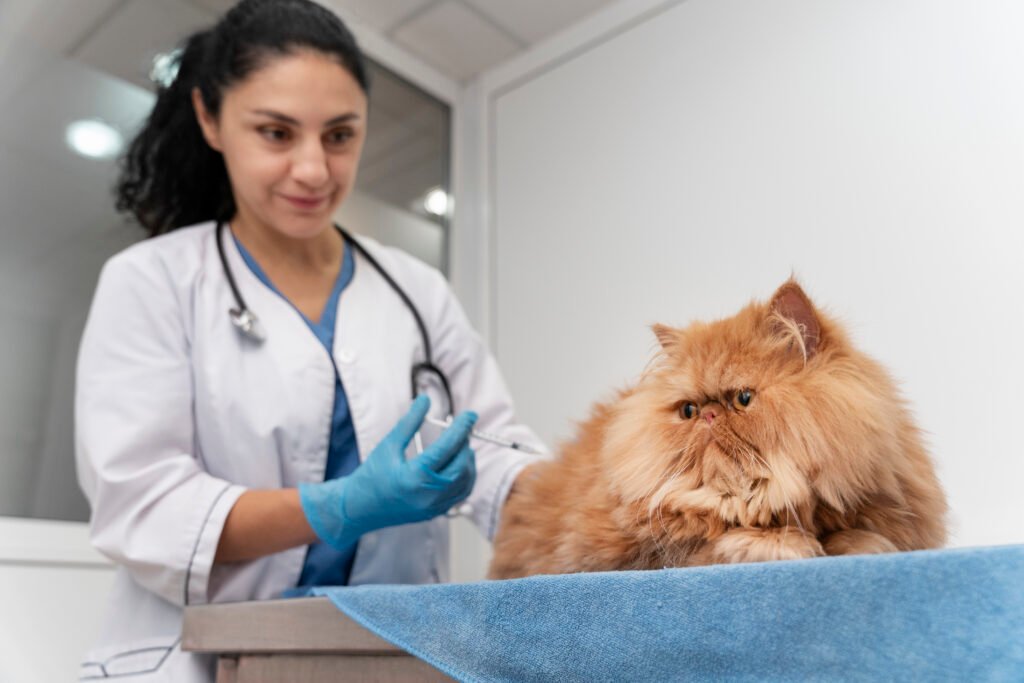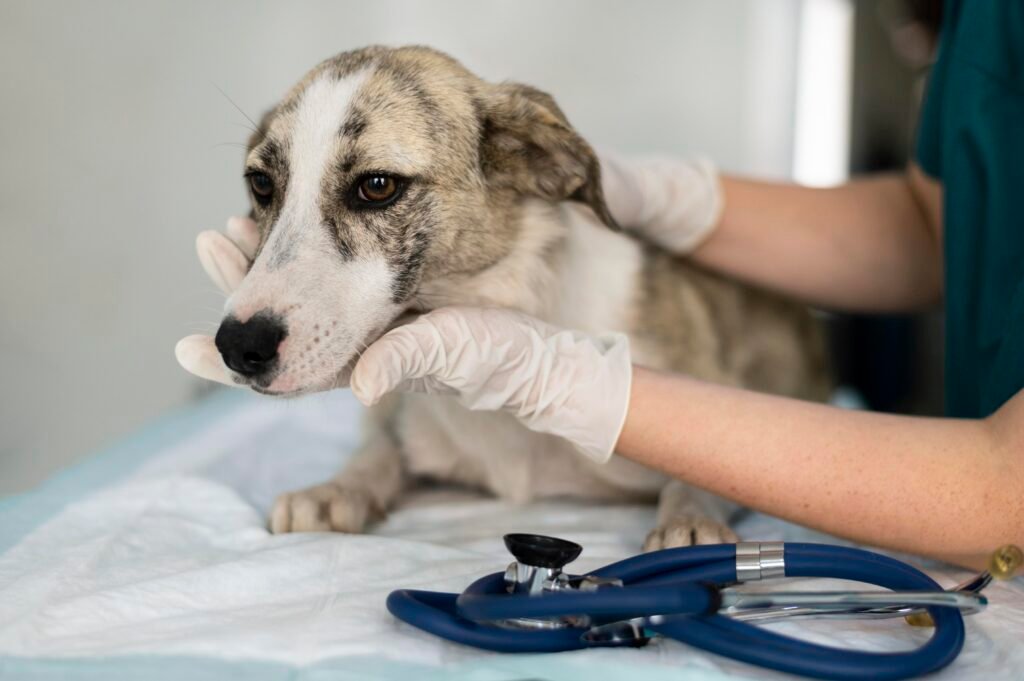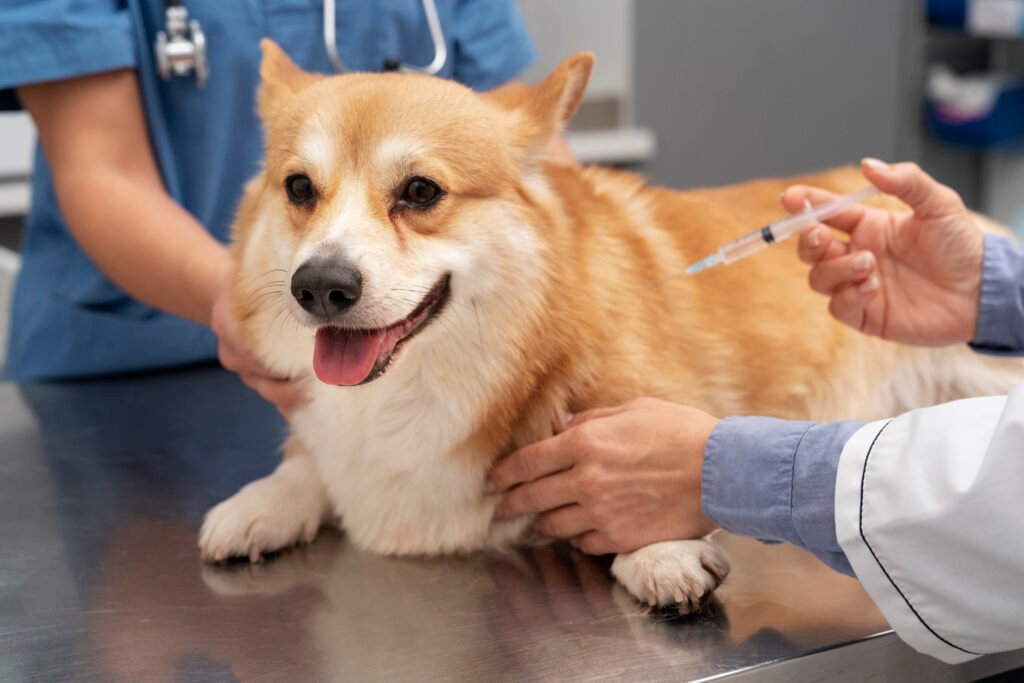Are vaccines for pets harmful?
While it is important to keep pets updated on their vaccinations, they can also be risky. Animals may have mild reactions (swelling at the injection site, rare allergic-type symptoms) or systemic signs of low-grade fever and pharyngitis. Serious risks — from mild hives to severe anaphylaxis, which needs immediate veterinary care (but the chances are 1 in a zillion that you will see this phenomenon). Gastrointestinal effects such as vomiting and/or diarrhea can also happen, but these side effects are generally self-limited. Pets with underlying health conditions, immunosuppressed patients, or those receiving certain medications may be at increased risk for adverse effects. Following vaccination, your pet should be carefully observed for signs of illness, and any unusual symptoms reported to the veterinarian. Cat rabies vaccine side effects should be taken seriously, and prompt veterinary attention is crucial if they occur.

Side Effects of Vaccinations in Pets and How to Manage Cat Rabies Vaccine Side Effects
Just like all medical interventions, although vaccines are important for the health and prevention of different diseases in pets they can give side effects. What these side effects are and how to manage them can help make the vaccination course less of a burden on their sensitive bodies so they stay comfortable and safe.
Common Vaccines Side-Effects in Pets
Mild Local Reactions:
- Potential side effects: Site that was injected may be swollen, red and sore;
- Support: Most of these go away on their own within a few days. A cold compressor applied to the area can help alleviate swelling and pain. If the reaction continues or worsens contact with your veterinarian.
Mild Systemic Reactions:
- SIGNS: Fever, lethargy or even transitory anorexia.
- Management: These are usually self-limiting responses. Provide your pet with a quiet place to rest, their favorite foods and water. If not better in a day or two, and if symptoms are more severe seek veterinary advice.
Allergic Reactions:
- Common symptoms: hives; itching; swelling of the face, eyelids, lips or limbs (particularly skin); shortness of breath. In rare situations, it can cause a life-threatening allergic reaction known as anaphylaxis.
- Treatment: Mild allergies can be treated with medications such as antihistamines or corticosteroids, under the direction of your veterinarian. Immediate veterinary attention is critical in the case of anaphylaxis. Certain vets you may visit might inject a pre-vaccination antihistamine to prevent serious allergic reactions.
Vomiting or Diarrhea:
- Signs or symptoms : Rarely this can cause gastrointestinal upset.
- Management: Keep your pet hydrated with bland food while letting their stomach settle. If vomiting or diarrhea lasts for more than 24 hours and is severe, contact your veterinarian.
Lump Formation:
- Symptoms: You may notice a small, hard bump near the injection area. This is typically a site reaction to the vaccine and should be self limited.
- Treatment: The majority of lumps go away after a few weeks Observe this lump to see if it gets bigger or changes texture. If it persists or becomes larger, or if there are other concerning symptoms, see your veterinarian.
Seeking Veterinary Attention
Some side effects are mild to moderate, while others do have something you need to be very careful with. If your pet shows any of these signs, call your veterinarian right away:
- Persistent, worsening redness or swelling at the injection site.
- Trouble breathing, or a severe reaction with facial swelling.
- Vomiting or diarrhea that lasts longer than 24 hours, is very frequent overall (i. e., after every feed), or contains blood/have consistency of “coffee grounds”
Symptoms of an allergic reaction, such as hives or swelling.
Sluggishness or loss of appetite
Preventive Measures
- To reduce your risk of side effects, use the following precautions:
- Your pet is healthy and free of any illness, which condition should be ruled out or controlled before receiving the vaccine
- The vaccination can only be provided by a licensed veterinarian and they have information on your pet at their fingertips.
- Comprehensive vaccination history customized for your pet.
Understanding that these adverse effects are a possibility, and knowing how to treat them helps to maintain your pet healthy with the added protection against serious but preventable diseases.

Certain conditions or factors can increase the risk of severe reactions to vaccines in pets.
And, there are certain conditions or factors that can elevate the risk of severe vaccine reactions in pets. Gaining a firm grasp of those risks assist pet owners and veterinarians in making more informed choices about vaccinating their dog while managing any adverse responses they may experience.
Other Factors that May Elevate Your Risk for a Severe Reaction to Vaccines
Medical Malpractice Due to Pre-Existing Health Conditions
Description: Animals with autoimmune disease, chronic illness or weakened immune systems may be at an increased risk of developing reactions to vaccines. They can also interfere with how your body will react to the vaccine or one of its parts.
Management: If your animal has existing health issues, go through this with the vet before a vaccination. They might suggest a health screening prior to vaccination or some changes in the vaccine frequency, which will minimize your risk.
Age of the Pet:
- Brief description: Pets less than a year old/pets 10 years or older may be at higher risk of side effects. Young animals may possess immature immune systems while seniors might have compromised immune responses or other age-specific health issues that can impact effectiveness.
- Management: Vaccination should be given at the recommended age and follow vet instructions regarding vaccines for different life stages.
Breed and Genetic Susceptibility:
- Caption: Certain breeds could be genetically or otherwise predisposed to unwanted responses. For instance, the Doberman Pinscher and Boxer dog breeds have reported higher rates of vaccine reactions.
- Management: Breed specific risks, consult with your vet regarding any unique concerns in terms of vaccinating or alternative vaccination programs for your pet’s breed.
Vaccine Reaction History:
- Brief description: If a pet has had an adverse reaction to vaccinations in the past then this cues us that your next pet may too. This history may involve mild symptoms, such as swelling or anaphylaxis.
- Publisher: Let your vet know about any previous vaccine response. This means that they might recommend pre-treatment strategies or select other vaccines with reduced recurrence potential.
Current Drugs or Therapy:
- Title: Reduced Vaccine Reactions in Companion Animals Description: Pets on certain medications, such as corticosteroids or immunosuppressive drugs (e. g., cyclosporine) can have an altered immune response leading to increased risk of adverse reactions to vaccines
- Control: Be sure to give a full list of all the medications or treatments your pet is on at time and see their vet. In this case, talk to your veterinarian about changing the vaccination schedule or using other options.
Environmental And Stress Factors
Overview: Allowing a pet to live in or through stressful environments can experiences can be detrimental for the general wellbeing and immune response of your four-legged friend. Not only does stress affect the body in a negative way, it also can make side effects of vaccines worse.
Vaccination: Stay Calm and Comfortable with your pet to minimize the stress during vaccination as well after. If stress is an issue then ask your vet about any firing techniques that will make vaccination the least painful on you, as well imos reduce unhappy mishaps.
Vaccination Overload:
It says: 2- Overload the immune system of your pet with multi vaccines in one day, which may cause more side effects for your pets as when they have many antigens to fight at a time.
Management: Keep in mind your vet will space vaccines or recommend combo-vaccines to juggle protection vs. risk of vaccination.
Preventive Measures
For prevention of severe vaccine complications:
- Pre-vaccination Health assessment: vaccination only if your pet is healthy and well. Routine examination would be helpful in determining this issue.
- Individual Vaccination Protocols: Plan some vaccinations specifically for your pet by discussing with your veterinarian based on their individual needs, health circumstances and risks that they might be exposed to.
Vaccine Related Health and Safety Tips Observation Post-Vaccination- Monitor your pet very closely for at least 24 to 48 hours post vaccination. By reporting any symptoms you see, you could prevent problems from ever developing.
Being aware of these factors and working closely with your veterinarian can help you in the long run to make vaccinations completely safe for your pets.

It’s important to distinguish between post-vaccination symptoms and signs of a potentially life-threatening condition in your pet.
Being able to tell the difference between typical side effects after vaccination and potential health issues in your furry friend will keep him safe and sound. Most pets will only experience mild and transient reactions to vaccines, but for those few who do react more severely it is important you are alert (pun intended) so that any issues can be addressed as soon as possible. This is a guide to help you distinguish between normal symptoms and those that require instant vet treatment:
Common after being vaccinated
Mild Local Reactions:
Symptoms: Swelling, redness or sore skin at the injection site.
How long does it last: Can clear up in a few days
Management: Usually these reactions are short-lived and self-limiting. If you do experience any soreness, a cold compress and observation of the area can help with pain. Consult a veterinarian if the symptoms persist or worsen.
Mild Systemic Reactions:
- Signs: may not have any; mild fever, low energy level or decreased appetite for a day.
- Duration: Generally 1–2 days.
- Management: Offer a place of shelter from noise and cozy to sleep. Provide their favorites and make sure that they are drinking. Persistent or worsening symptoms require veterinary attention.
Upset stomach/ gastrointestinal part -Very common (may affect more than 1 in every 10 women)
Symptoms: Small amounts of Vomiting or diarrhea.
Time: Usually resolves in 24 hours.
Management: Make sure your pet is drinking and eating a bland diet if necessary. Keep a close eye on their condition and call your vet if symptoms persist for over 24 hours or are more serious.
Major Health Conditions That Require Emergency Care By A Veterinarian
Severe Allergic Reactions:
- Signs of reaction warning: severe swelling of the face or limbs, hives, difficulty breathing (wheezing), symptoms suggesting anaphylaxis. File stream Data Symptoms for life-threatening pseudocyst formation
- Timing: Minutes to hours after vaccination.
Local Reactions:оя Persistent or Severe
- Signs: A hard, bony mass at the injection site that persists or causes pain in activities.
- How Long: Bumps staying more than 1-month or growing
- Management: Call your veterinarian to have an inspection. If the lumps are not going away, they may need to be evaluated for a pathology.
High fever or excessive lethargy
- Symptoms: a high fever (usually over 103°F or 39.4°C) and/or severe lethargy that does not get better
- How frequently: More than every 48 h or severe.
Direction: If your pet shows signs of illness, consult a professional in the field. A high fever or severe drowsiness can be a sign of a more serious reaction and may be combined with some other health problem.
Bad Gastrointestinal Symptoms
- Symptoms: Vomiting that lasts for more than 48 hours, diarrhea or dehydration (that which leads to peeing infrequently/out a few drops & feeling overly thirsty)
- Length: Symptoms lasting more than 24 hours or accompanied by other high-risk signs.
- Management: If your pet’s lameness persists, or appears severe; if the dog is reluctant to move around then contact your veterinarian.
Observational Tips
- Monitor Them: Watch for any mood, appetite or physical changes in your pet post-vaccine dose. It is most important to observe dogs closely during the first 24-48 hours when any issues will arise sooner rather than later.
- Symptom documentation: Keep track of symptoms, how bad they get and when. This information may also help your vet in diagnosing and treating any issues.
- Contact Your Veterinarian: If you remain unsure about how serious your pet’s symptoms are or if anything appears to be unusual, reach out for guidance.
Being aware of these differences and observing your pet carefully after the vaccination can help in providing proper management and intervention whenever it is required.
